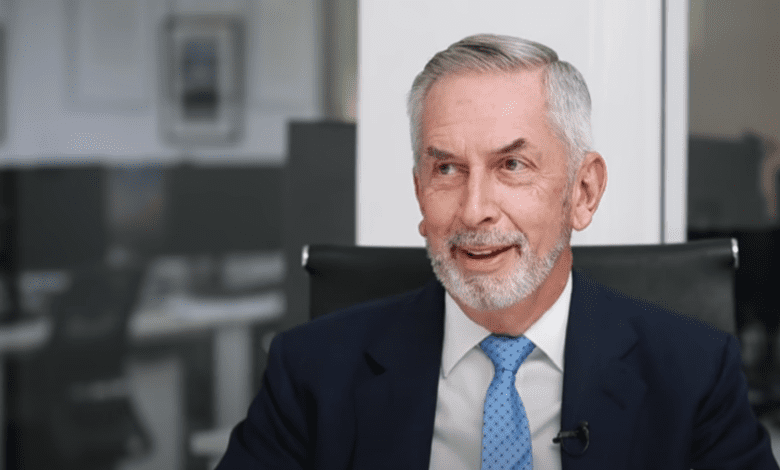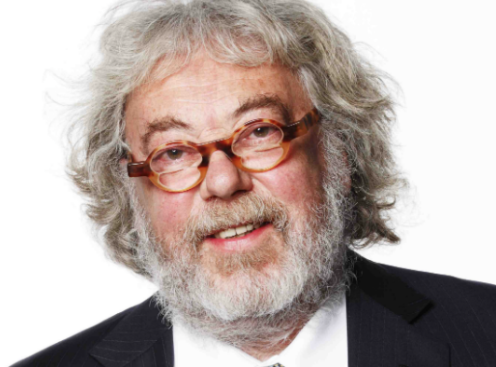Terry Smith Says Stocks Have A Unique Advantage Over Any Other Asset Class
Powerful compounding effects are occurring underneath the hood.
"Which in my experience is rarely understood & rarely discussed."
Here's how & what to look for:
🧵
Powerful compounding effects are occurring underneath the hood.
"Which in my experience is rarely understood & rarely discussed."
Here's how & what to look for:
🧵

1/
There are several ways stocks can compound in value in a way that other asset classes cannot, such as bonds and real estate.
The are a few simples reasons:
There are several ways stocks can compound in value in a way that other asset classes cannot, such as bonds and real estate.
The are a few simples reasons:
2/
Reinvestment of Profits:
Companies retain a portion of the profits they generate to reinvest in the business.
S&P 500 companies on average pay out about half of their earnings in dividends.
That leaves another 50% of earnings available.
Reinvestment of Profits:
Companies retain a portion of the profits they generate to reinvest in the business.
S&P 500 companies on average pay out about half of their earnings in dividends.
That leaves another 50% of earnings available.
3/
The earnings that are not paid out are invested back into the business.
No other asset class provides this.
So why does this aspect make stocks a superior investment class?
The earnings that are not paid out are invested back into the business.
No other asset class provides this.
So why does this aspect make stocks a superior investment class?
4/
Put simply, this aspect creates two forces that can generate a large compounding effect.
Here's how:
Put simply, this aspect creates two forces that can generate a large compounding effect.
Here's how:
5/
ROCE:
The average company in the S&P 500 earned a return on capital employed (ROCE) of 13% last year.
If the business retains half the earnings (that it did not pay out as a dividend), this is where the magic can start to happen.
ROCE:
The average company in the S&P 500 earned a return on capital employed (ROCE) of 13% last year.
If the business retains half the earnings (that it did not pay out as a dividend), this is where the magic can start to happen.
6/
If the business can continue to re-invest those earnings back into the business at its current rate of return (13%), the stock's value will grow nicely.
But something else makes this even more powerful...
If the business can continue to re-invest those earnings back into the business at its current rate of return (13%), the stock's value will grow nicely.
But something else makes this even more powerful...
7/
Price to Book Value:
On average, companies in the S&P 500 trade on 3x book value.
So for every dollar of earnings the company retains, they create $3 of market value.
Price to Book Value:
On average, companies in the S&P 500 trade on 3x book value.
So for every dollar of earnings the company retains, they create $3 of market value.
8/
This is not the same as the frequently uttered mantra that, the majority of the return on equities comes from reinvestment of dividends.
Dividends which are reinvested, have to buy the stock at the market price (3x book value).
This is not the same as the frequently uttered mantra that, the majority of the return on equities comes from reinvestment of dividends.
Dividends which are reinvested, have to buy the stock at the market price (3x book value).
9/
Whereas each $1 of retained earnings, gets reinvested at book value (not 3x book value).
So the reinvestment of retained earnings can create a lot of growth in the value of your shares.
Whereas each $1 of retained earnings, gets reinvested at book value (not 3x book value).
So the reinvestment of retained earnings can create a lot of growth in the value of your shares.
10/
The value creation effect of this is quite powerful, if you can own stocks that achieve above average ROCE.
Which, as a result, can manage to translate each $1 of retained earnings into a market value which is a much higher multiple of book value.
The value creation effect of this is quite powerful, if you can own stocks that achieve above average ROCE.
Which, as a result, can manage to translate each $1 of retained earnings into a market value which is a much higher multiple of book value.
11/
If this is the case, the last thing you want is that company to pay you a dividend.
If that company is achieving a high rate of return on earnings.
This is perhaps illustrated best by Buffett's Berkshire Hathaway, which hasn't paid a dividend in over 50 years.
If this is the case, the last thing you want is that company to pay you a dividend.
If that company is achieving a high rate of return on earnings.
This is perhaps illustrated best by Buffett's Berkshire Hathaway, which hasn't paid a dividend in over 50 years.
12/
Want to know what stocks Super Investors like Buffett, Dalio or Li Lu are buying?
There's a tool for that in my "Toolkit For the Value Investor".
Also - valuation tool, stock screener tool & more.
Get a FREE copy here:
download.valueinvestoracademy.com/toolkit
Want to know what stocks Super Investors like Buffett, Dalio or Li Lu are buying?
There's a tool for that in my "Toolkit For the Value Investor".
Also - valuation tool, stock screener tool & more.
Get a FREE copy here:
download.valueinvestoracademy.com/toolkit
13/
I write about world class investors & wonderful companies.
Follow for more:
@ValueInvestorAc
Enjoyed this? Please help us reach a greater audience, by retweeting the 1st tweet of this thread. Thanks!
I write about world class investors & wonderful companies.
Follow for more:
@ValueInvestorAc
Enjoyed this? Please help us reach a greater audience, by retweeting the 1st tweet of this thread. Thanks!
https://twitter.com/1258223891895336960/status/1742879324926025808
• • •
Missing some Tweet in this thread? You can try to
force a refresh










